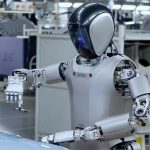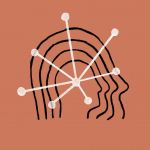DeepSeek packed LLM engine into 1200 lines of Python code

The DeepSeek team presented nano-vLLM. This is a lightweight and compact engine for running large language models. Which could change perceptions about code efficiency. Amazingly, all functionality fit into just 1200 lines of Python code! This is true technological minimalism in the world of artificial intelligence. Traditional engines like this, for all their power, often suffer from an overloaded codebase. Which makes their modification a real trial for developers. Nano-vLLM solves this problem by offering a simple but powerful tool without unnecessary complexity. The code is open.
At the same time, functionality is not sacrificed. The engine supports prefix caching, tensor parallelism, compilation with torch compile and working with CUDA. Tests on a laptop graphics card RTX 4070 with 8 GB memory showed impressive results. When running the Qwen 3.0 model with 6 billion parameters, DeepSeek’s engine processed 133966 tokens in 93.41 seconds. Which is even faster than the original vLLM engine.
AIvengo >
Reviews >
DeepSeek packed LLM engine into 1200 lines of Python code
Почитать из последнего

UBTech will send Walker S2 robots to serve on China's border for $37 million
Chinese company UBTech won a contract for $37 million. And will send humanoid robots Walker S2 to serve on China's border with Vietnam. South China Morning Post reports that the robots will interact with tourists and staff, perform logistics operations, inspect cargo and patrol the area. And characteristically — they can independently change their battery.

AI chatbots generate content that exacerbates eating disorders
A joint study by Stanford University and the Center for Democracy and Technology showed a disturbing picture. Chatbots with artificial intelligence pose a serious risk to people with eating disorders. Scientists warn that neural networks hand out harmful advice about diets. They suggest ways to hide the disorder and generate "inspiring weight loss content" that worsens the problem.

OpenAGI released the Lux model that overtakes Google and OpenAI
Startup OpenAGI released the Lux model for computer control and claims this is a breakthrough. According to benchmarks, the model overtakes analogues from Google, OpenAI and Anthropic by a whole generation. Moreover, it works faster. About 1 second per step instead of 3 seconds for competitors. And 10 times cheaper in cost per processing 1 token.






